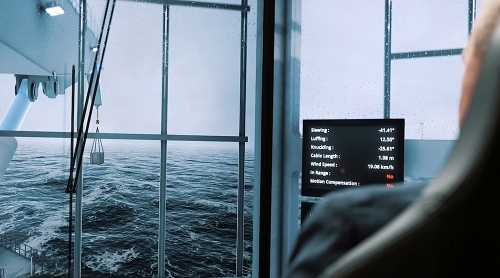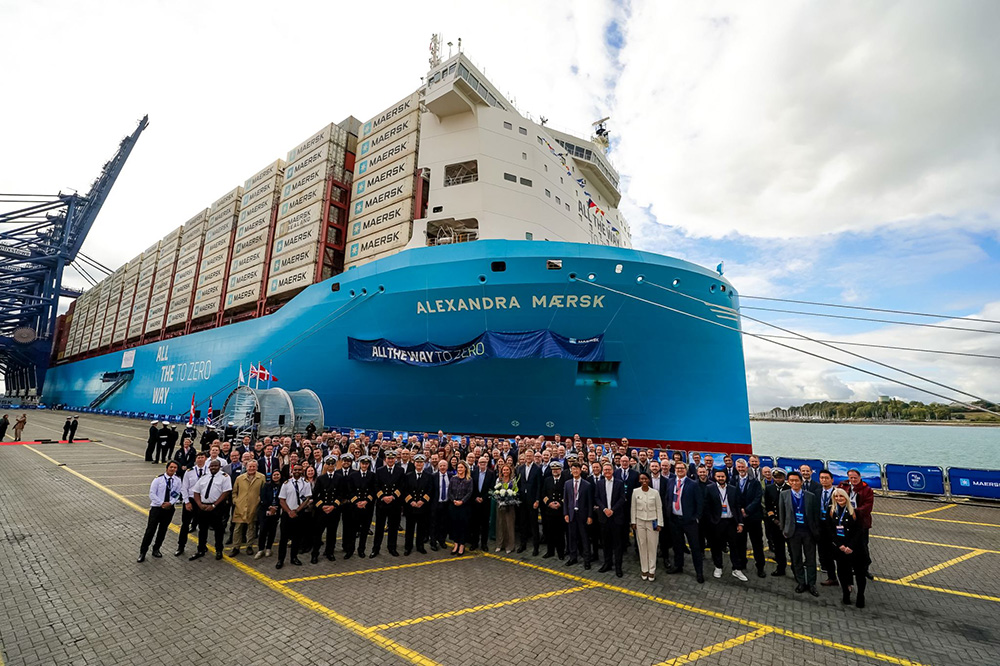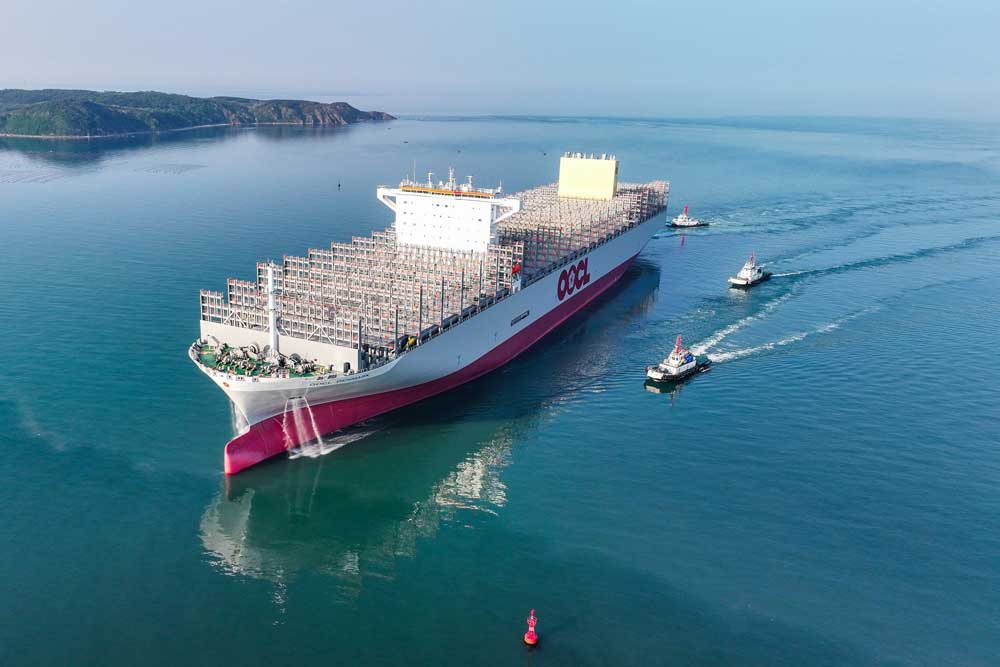According to a new PwC study, German shipowners are expecting tougher times ahead: Climate targets, geopolitics and staff shortages are the biggest challenges.
After almost three years of high revenues, the boom years in the shipping industry are over for the time being. The current economic and market weakness, geopolitical changes and cost-intensive decarbonization are dampening business expectations. [ds_preview]

Only one in two shipowners still expects growth, according to the latest study by business consultants PwC. The study surveyed 110 decision-makers from German shipping companies. According to the study, the biggest challenge for years to come will be meeting environmental regulations and climate targets.
André Wortmann, Head of the Maritime Competence Center at PwC Germany, believes that the shipping industry urgently needs to restructure towards more sustainable and environmentally friendly solutions in order to position itself for the future.
PwC study: Shipowners are skeptical about climate targets
However, many companies are skeptical about the EU Commission’s target of reducing emissions by more than 55% by 2030 compared to 1990 levels. A quarter of managers even believe that it will definitely not be possible to achieve this target. This is an increase of ten percentage points compared to 2021.
Nevertheless, 77% of shipping companies are already using digital tools – an increase of 13 percentage points compared to 2021. In addition, the proportion of shipping companies that have implemented measures to reduce emissions has more than doubled. While only one in three shipping companies reported that they were consciously reducing emissions in 2021, 71% are already doing so today.
Uncertainty with regard to alternative fuels
There is still a great deal of uncertainty regarding the question of which alternative fuels will prevail in the industry in the future. LNG or hydrogen is not seen as an option in the long term, but methanol is: 65% of those surveyed believe that it could dominate long-haul routes in 20 years’ time. This has implications for the ordering of newbuilds. Seven out of ten respondents believe that there would be many more orders if the fuel issue were resolved.
Geopolitical conflicts are likely to continue to affect the industry. A good one in two companies (53%) believe that the war in Ukraine will have a lasting negative impact on business. 85% also consider a shift in shipping routes to be certain or likely. For example, cargo flows could shift to Central Africa and Asia. For China, on the other hand, the majority expect cargo volumes to fall. An increase in the value of regional traffic is also considered likely.
Skills shortage is a problem for the industry
The shortage of skilled workers is also one of the key challenges facing the industry. It is a problem for 85% of shipping companies, with two out of three companies already specifically affected. Almost one in ten companies (9%) already has significant staffing gaps. The shortage of skilled workers primarily affects higher ranks at sea, such as captains and officers, but technical staff as well as commercial and administrative specialists on land are also hard to find.
PwC sees falling rates
In addition, economic uncertainties are also causing increasing concern in the industry. At present, 93% of shipping companies are still operating at full capacity and expectations for the short-term development of global cargo volumes are correspondingly positive. However, seven out of ten shipping companies are of the opinion that the many new orders for container ships will lead to significant overcapacity in a few years’ time.
The growth outlook is also much more subdued than in previous years: only a small majority of managers (56%) still expect growth in the next twelve months. In the previous year, 74% still expected sales to rise. Both freight (83%) and charter (87%) rates are expected to stagnate or fall.
















